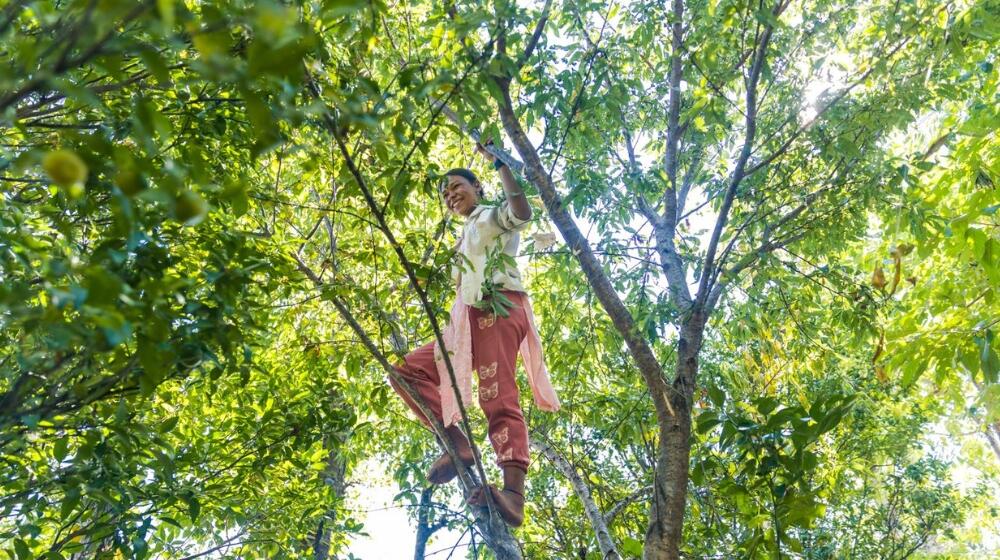Maiya's (not her real name) journey has been one of resilience. This 30-year-old woman from Sunsari in the east of Nepal, was supporting her family through modeling in the nearby district of Siraha.
In Siraha, she met a man who promised a future together, and provided her a place to stay and supported her financially. He even moved with her to Biratnagar, another city in eastern Nepal. Slowly, he began to forbid her from leaving the house and started abusing her sexually and physically. This suffocating relationship steadily depleted her health, both physical and mental.
One day, Maiya decided to file a complaint at the Biratnagar Police who referred her to the One-Stop Crisis Management Centre. Though initially hesitant because the man was blackmailing her, through the support of the police, the One-Stop Crisis Management Centre offered her a new lifeline.
At the One-Stop Crisis Management Centre, Maiya received counselling from skilled therapists who guided her through her trauma. With each session, Maiya's burdens slowly lightened, and Maiya is now living a transformed life with her aunt in her home district of Sunsari. The Centre also provided her with legal aid services which helped her to put the man behind bars for his crimes.
Maiya's journey highlights the critical role of organizations like OCMC that are supported by UNFPA under the Gender-based Violence Prevention and Response Project funded by the Swiss Agency for Development Cooperation and the Royal Norwegian Embassy of Kathmandu in select districts in the Koshi and Sudurpaschim provinces.
While strengthening gender-based violence response mechanisms, UNFPA also works to prevent gender-based violence through several strategic tailored initiatives like the Rupantaran sessions which equip young people with life skills and knowledge on key issues like challenging discriminatory gender stereotypes and norms that could trigger gender-based violence and harmful practices.
17 year old Rupa is one such participant from Bajura in the far-west of Nepal whose parents believed that daughters should be married off early. They would discriminate between their son and daughter in every aspect, from clothing to food and education. Rupa was also made to adhere to the practice of chhaupadi which forced her to be isolated in a separate space outside her family house during her menstruation with no access to nutritional food, especially dairy products. She was also confined to do things that “daughters were supposed to do” - cook, clean and “stay indoors and behave like a girl’’. Climbing trees was not part of this code although she loved to be out in nature, free to run around!
Parallelly Rupa’s parents also started attending the Family Dialogues - another initiative that is designed to educate and empower communities on harmful norms that could trigger violence in the homefront and the community. This reinforced the messages that Rupa was taking home with her and as a family they started to realize that things needed to change.
Over time, the family has made drastic changes in how they live. Rupa and her brother now receive equal amounts of milk and nutritious food, they both engage in household chores and they both support their parents in the work that they do.
“After attending Rupantaran classes, I realised how much our thinking needed to change. Today, as a family, we live our lives so differently,” says Rupa.
Ending all forms of gender-based violence, including discriminatory practices that value a son over a daughter, must end now! Not just for Maiya and Rupa - but for every woman and girl in Nepal.


